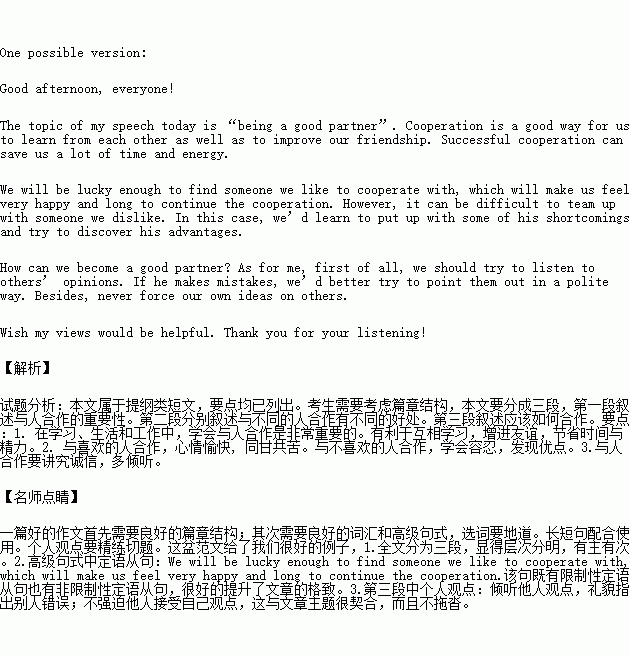题目内容
在学习、生活和工作中,学会与人合作是非常重要的。请你根据下表中提供的信息,写一篇题为“Being a Good Partner ”的英文演讲稿。
为何合作 | 有利于互相学习,增进友谊,节省时间与精力 | |
与谁合作 | 与喜欢的人合作 | 心情愉快, 同甘共苦 |
与不喜欢的人合作 | 学会容忍,发现优点 | |
怎样合作 | 你的观点…… (至少2个) | |
注意:
1. 对所给要点进行陈述,适当发挥,不要简单翻译。
2. 词数100左右。开头已经写好,不计入总词数。
3. 参考词汇:合作cooperation(n.) cooperate(v.)
Good afternoon, everyone!
The topic of my speech today is “being a good partner”. _____________________
练习册系列答案
相关题目

